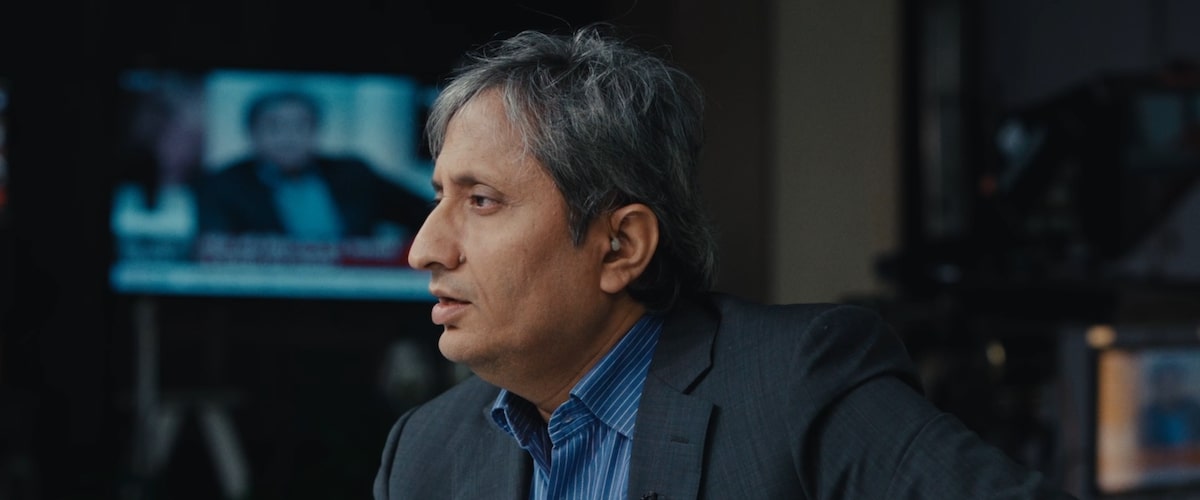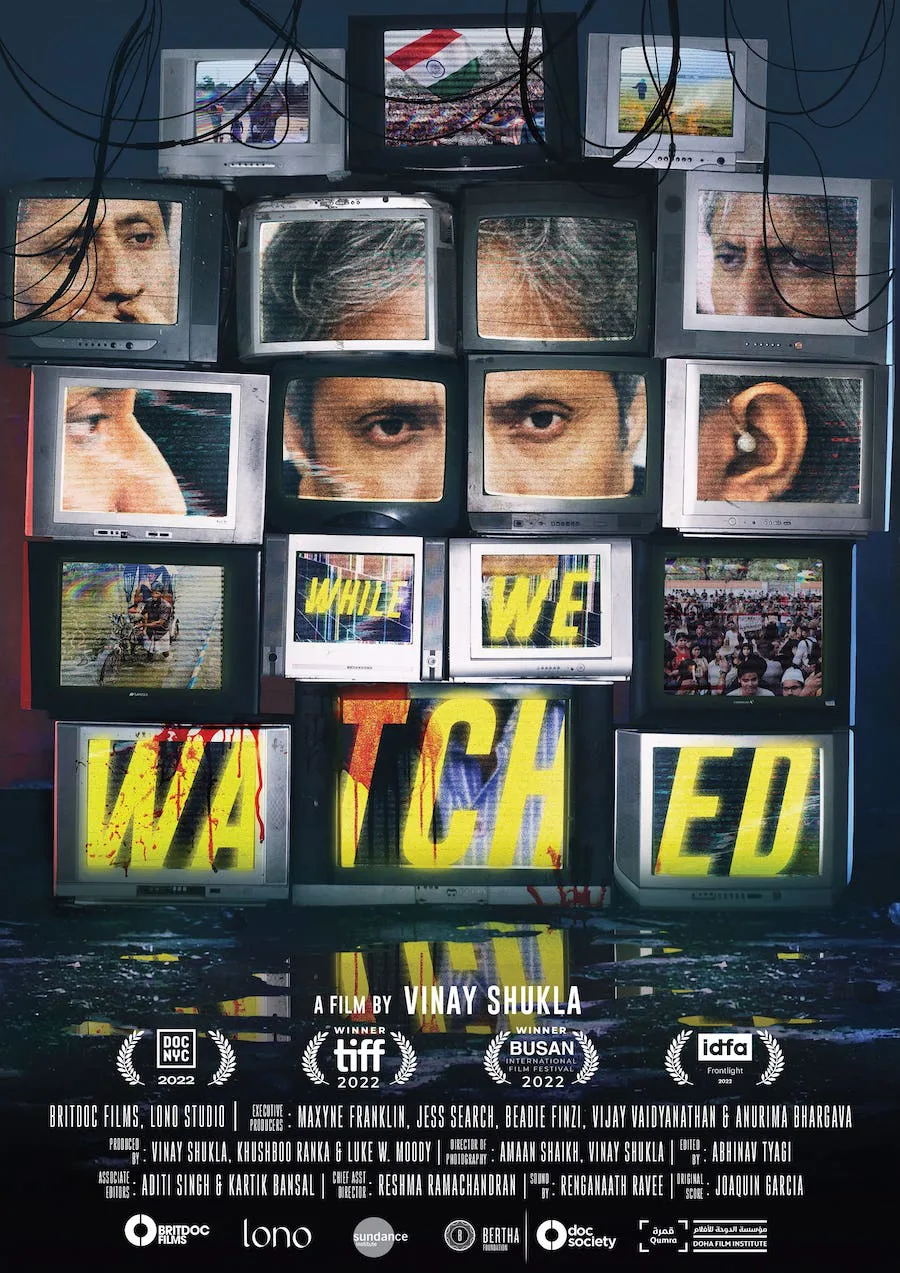Embedded at the Indian news company NDTV, director Vinay Shukla observes Ravish Kumar, a journalist, and newscaster working against the rising political extremism of his country. For many American viewers, the situation in India in 2019 during the nation’s parliamentary elections is a familiar mirror to the prominence of Fox News. Over 94 minutes, Shukla captures the politicized ethics and swirling hysteria leading to the decline of contemporary journalism and the precarious position NDTV occupies on the television landscape.
It takes time for “While We Watched” to find momentum: Shukla’s vérité approach spends the first half hour or so notating the broad problem. What follows is a series of blaring clips of blustering Indian anchors vying for the public’s attention by offering up polarizing red meat. For them, that amounts to denouncing any dissenter as an enemy of the state or an anti-nationalist. Shukla juxtaposes these deafening clips with images of Kumar in melancholic silence. This dynamically jarring back-and-forth borders on overwrought, as it doesn’t take long to get the gist of the grave journalistic situation at hand.
“While We Watched” doesn’t get going until it turns into a crisis of faith for Kumar. Can he still practice the kind of reporting necessary to maintain an informed public in the face of extremism, or should he leave the profession altogether?
We begin to see NDTV take many hits due to Kumar’s search for truth: the government possibly censors the station’s broadcasts by scrambling its signal, other anchors attack Kumar, and he receives a mountain of death threats from irate viewers. As a result, NDTV begins to lose viewers and reach, causing some journalists to depart, to the point of the network being reduced to a skeleton crew. Even Kumar’s superiors hint that maybe he should pull back a little from his criticisms of the government and other rival news programs.
Some of the documentary’s best scenes arise from watching the craft of reporting at work as these writers try to pull together breaking news stories even as their limited resources put obstacles in their way. Other fascinating, introspective moments occur as Kumar ponders his place in the industry. He begins to lose faith, even circling the drain of delirium. In one scene, he responds to a crank caller by patronizing him; he even asks the threatening voice to sing along. The danger only ramps up as tensions between Hindus and Muslims fray when a 2019 terrorist attack leads to the death of 40 CRPF soldiers in India.
During such trying days, Kumar often depends on his wife, Nayava. We don’t learn much about her other than she is the caring ear who offers him advice and encouragement, and she works at a university. But you feel like Shukla could zoom out more here. In tying together Kumar mostly to this single newsroom, the documentary veers toward being one-note rather than an intriguing study of Kumar, partly as seen through his wife (we could at least know what she does at the university). You also come to wish there was more information about the main players in Indian television news. We certainly are given a compendium of clips of certain firebrand anchors, but apart from their prominence and nauseating yelling, are they from a range of smaller networks, or are they true power players? Also, is Kumar the only newscaster who is speaking up?
“While We Watched” is an urgent interrogation of the state of journalism today. And yet, while important, it’s unclear what this has to say that hasn’t already been said. We know the control of information and discourse is bleak, but who is fighting the bleakness? If we go by “While We Watched,” it’s only Kumar.
Now playing in theaters.




















